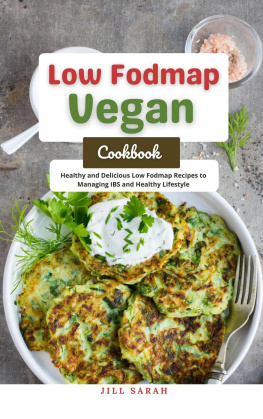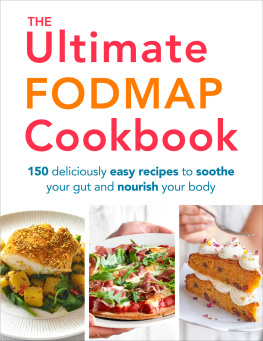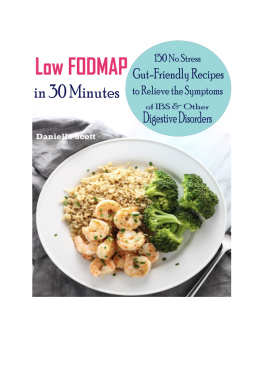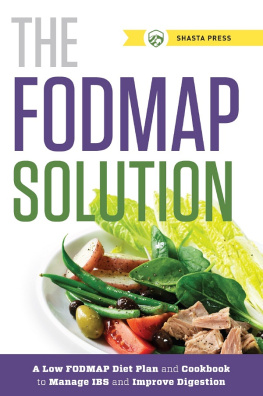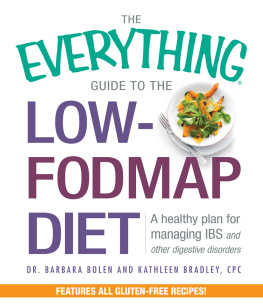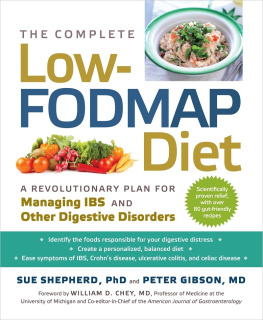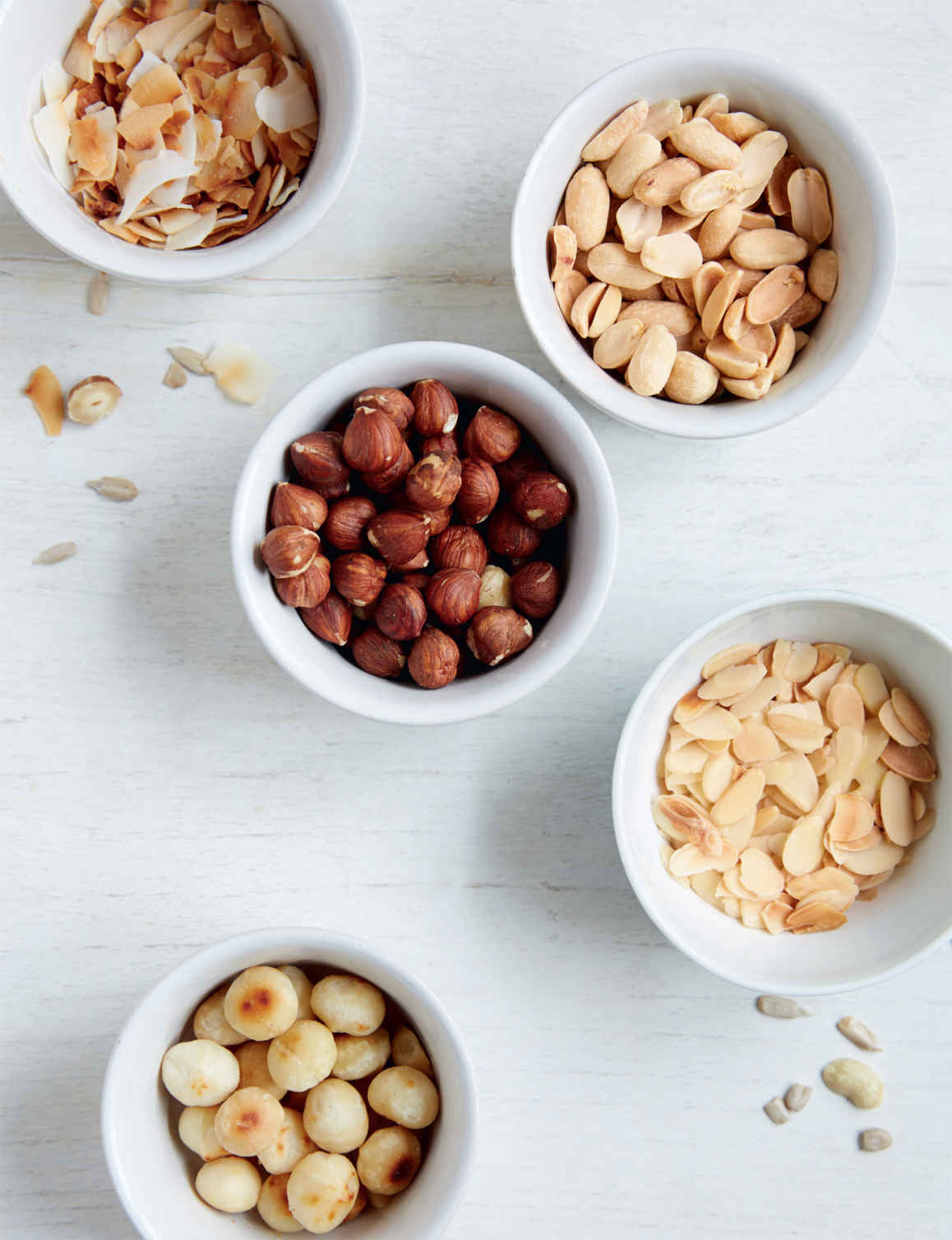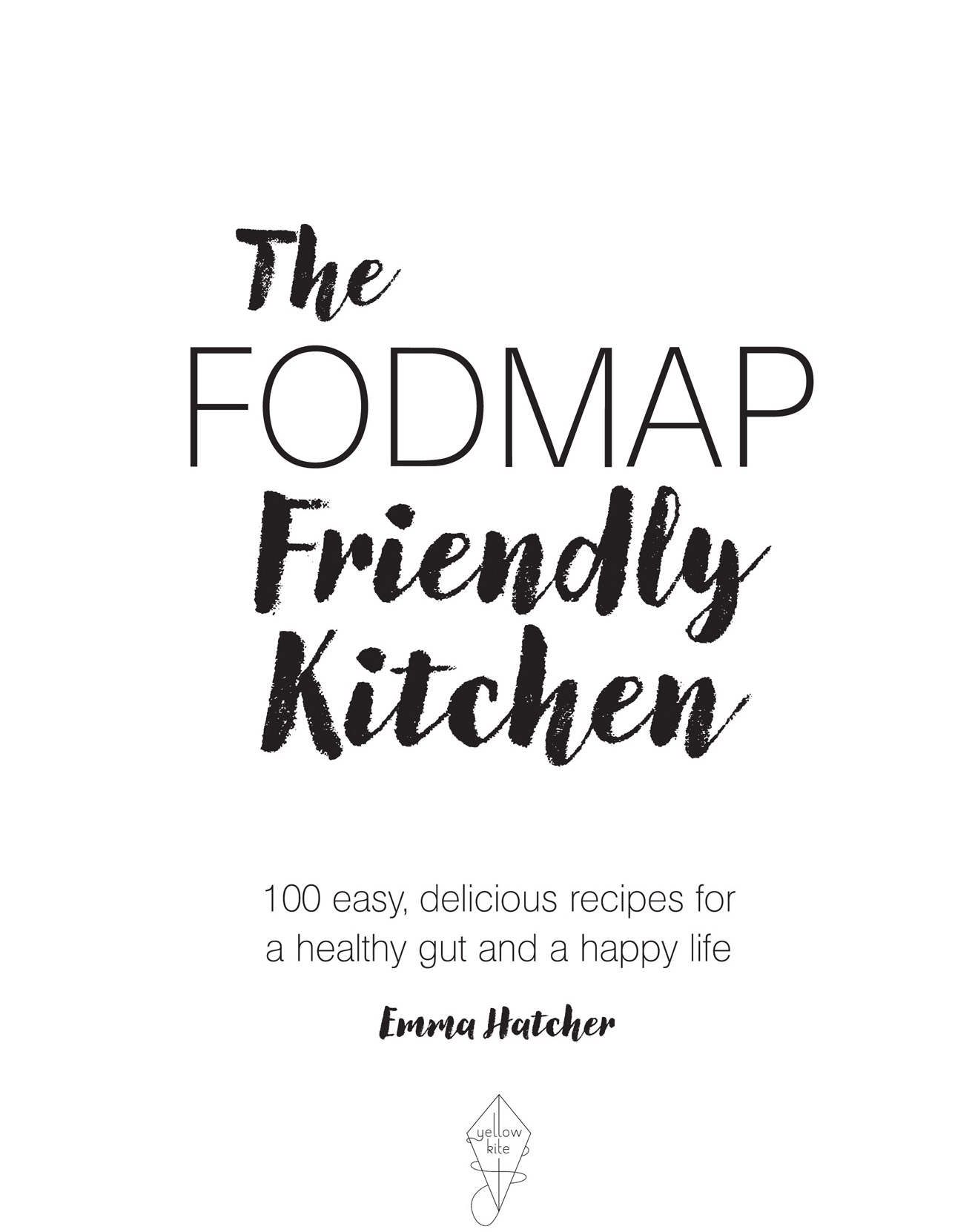
www.hodder.co.uk

First published in Great Britain in 2017 by Yellow Kite
An imprint of Hodder & Stoughton
An Hachette UK company
Text Emma Hatcher 2017
Foreword Fodmap Friendly Pty Limited 2017
All page numbers below refer to the print edition.
Photography pages Malou Burger 2017
Photography pages Luke Fullalove 2017
Photograph page Dorothy Cross 2017
All other photography Emma Hatcher 2017
Images pages Shutterstock.com
The right of Emma Hatcher to be identified as the Author of the Work has been asserted by her in accordance with the Copyright, Designs and Patents Act 1988.
All rights reserved. No part of this publication may be reproduced, stored in a retrieval system, or transmitted, in any form or by any means without the prior written permission of the publisher, nor be otherwise circulated in any form of binding or cover other than that in which it is published and without a similar condition being imposed on the subsequent purchaser.
A CIP catalogue record for this title is available from the British Library
Hardback ISBN 978 1 473 64146 4
Ebook ISBN 978 1 473 64148 8
The advice herein is not intended to replace the services of trained health and fitness professionals, or be a substitute for medical advice. You are advised to consult with your health care professional with regards to matters relating to your health, and in particular regarding matters that may require diagnosis or medical attention.
Hodder & Stoughton Ltd
Carmelite House
50 Victoria Embankment
London EC4Y 0DZ
www.yellowkitebooks.co.uk
www.hodder.co.uk
I dedicate this book to my readers, without whom this
would never have been possible. Were in this together,
you brilliant bunch, and I hope this book gives back just
some of the inspiration and support youve given me.
Contents
Dear readers,
I wanted to start by saying that I am like so many of you. Busy, active, happy and yet somebody with a gut that just does not want to play by the rules.
But thankfully now I love my gut and it loves me. Sure we have our ups and downs, sometimes we fight mainly when theres milk chocolate involved but for the majority of the time we live in harmony, chilling out with delish food thats low in a thing called FODMAPs.
Cutting out foods that are high in FODMAPs doesnt have to be hard. In this book Ill explain how FODMAP friendly living works, and share my favourite recipes with you. Gut health can have such a huge impact on your life, and I hope that this book will change yours in the same way it has mine. Enjoy!
Lots of love,
Emma x
Follow She Cant Eat What?!
www.shecanteatwhat.com instagram.com/shecanteatwhat facebook.com/shecanteatwhat Twitter @shecanteatwhat
Emmas blog caught our eye some time ago. Not only are her photographs bright, positive and beautifully presented, but her personality shone through in the content she was creating. Her passion for helping those with food intolerances was paramount, and we could feel it was the start of something big.
We first met up with Emma in London, when working on FODMAP Friendly during a trip over from Melbourne in 2015. Since then our relationship has blossomed with the objective of spreading the FODMAP word, sparking both a close friendship and opportunities to work together.
Emma knows first-hand just how nasty suffering from IBS, or even just some of its symptoms can be, and were sure many of you reading this will too.
Irritable Bowel Syndrome (IBS) currently affects 1 in 7 individuals on a daily basis. Medically, its defined as a syndrome affecting the large colon and a chronic condition that requires long-term management. Symptoms include cramping, abdominal pain, bloating, diarrhoea and constipation. Charming, right? Even if you havent been diagnosed with IBS, chances are that you have experienced some of these symptoms after eating.
The good news is, a management plan has been found one that sees results for over 70 per cent of sufferers.
Research from the last two decades has shown that FODMAP sugars (full low-down on what these are on ) are known to cause IBS type symptoms, due to the bodys inability to break them down during the first stages of digestion. These sugars are poorly absorbed in the small intestine, so move into the large intestine, where theyre fed on by bacteria, a process known as fermentation. This in turn leads to the production of gas, and can result in many unpleasant gastrointestinal symptoms, such as those mentioned.
Numerous studies have consistently proven the efficiency of a low FODMAP approach to managing IBS on a global scale. Prominent examples include:
A study in Australia that showed 85 per cent of patients reported experiencing improved symptoms with the implementation of a Low FODMAP Diet to manage their IBS symptoms (Shepherd et al, 2006).
A Kings College London clinical study (Staudacher, 2011) into IBS management, that showed the adoption of a Low FODMAP Diet for six weeks to show an improvement in 78 per cent of patients.
A 2016 clinical trial conducted by doctors at the University of Michigan Health System that concluded at four weeks, the proportion of patients with a meaningful improvement in IBS severity and quality of life was significantly higher in the low FODMAP group compared to the control group 61 per cent versus 27 per cent.
Consequently, the adoption of a diet low in FODMAPs is now regarded as the recommended treatment for IBS worldwide. This approach is now endorsed by health professionals around the globe, and was recently written into the National Institute for Health and Care Excellence (NICE) guidelines: evidence-based recommendations for health and care in the UK.
Adopting a diet low in FODMAPs requires commitment, but this book will make it simple and easy to follow. The diet itself is comprised of three phases elimination, reintroduction and maintenance which were devised from original research into managing IBS through a reduction in FODMAPs, and the findings that were produced. By progressing through the three phases, and reducing the amount of FODMAPs in your diet, your gut wall has a chance to repair and heal. The end aim is to eat and live as freely as possible with the least restrictions you can get away with the more FODMAPs you can return to your diet, after giving your gut wall a chance to repair and without triggering symptoms, the healthier (and happier) your gut is likely to be.
Alongside diet, stress plays a big part in IBS too. Its associated symptoms can be embarrassing to manage, which can increase stress levels as a result. Unfortunately, stress is then associated with an increase in symptoms, which can exacerbate the condition overall. The shame and awkwardness associated with gastrointestinal symptoms can be socially isolating social situations involving food and drink can start to feel like a nightmare and sometimes its just easier to avoid them for fear of inducing symptoms.


